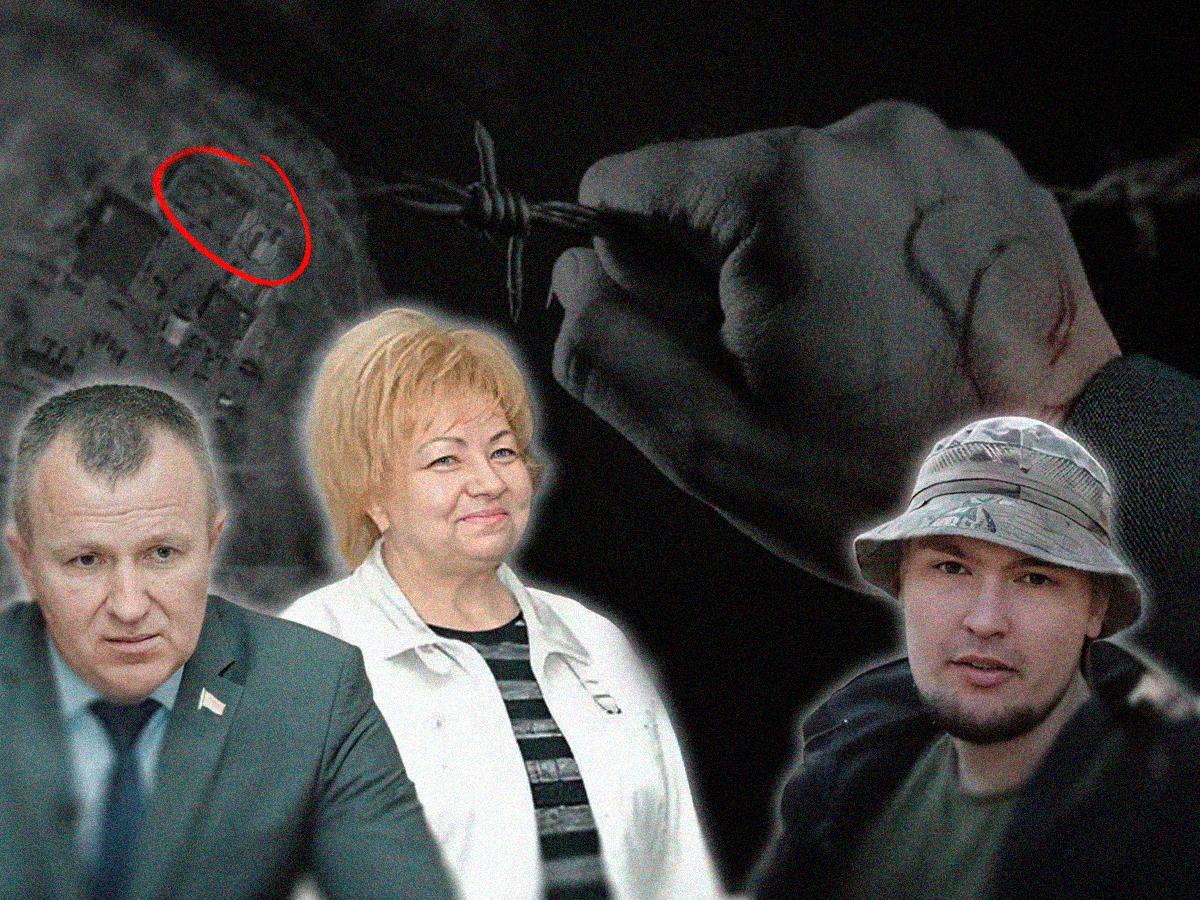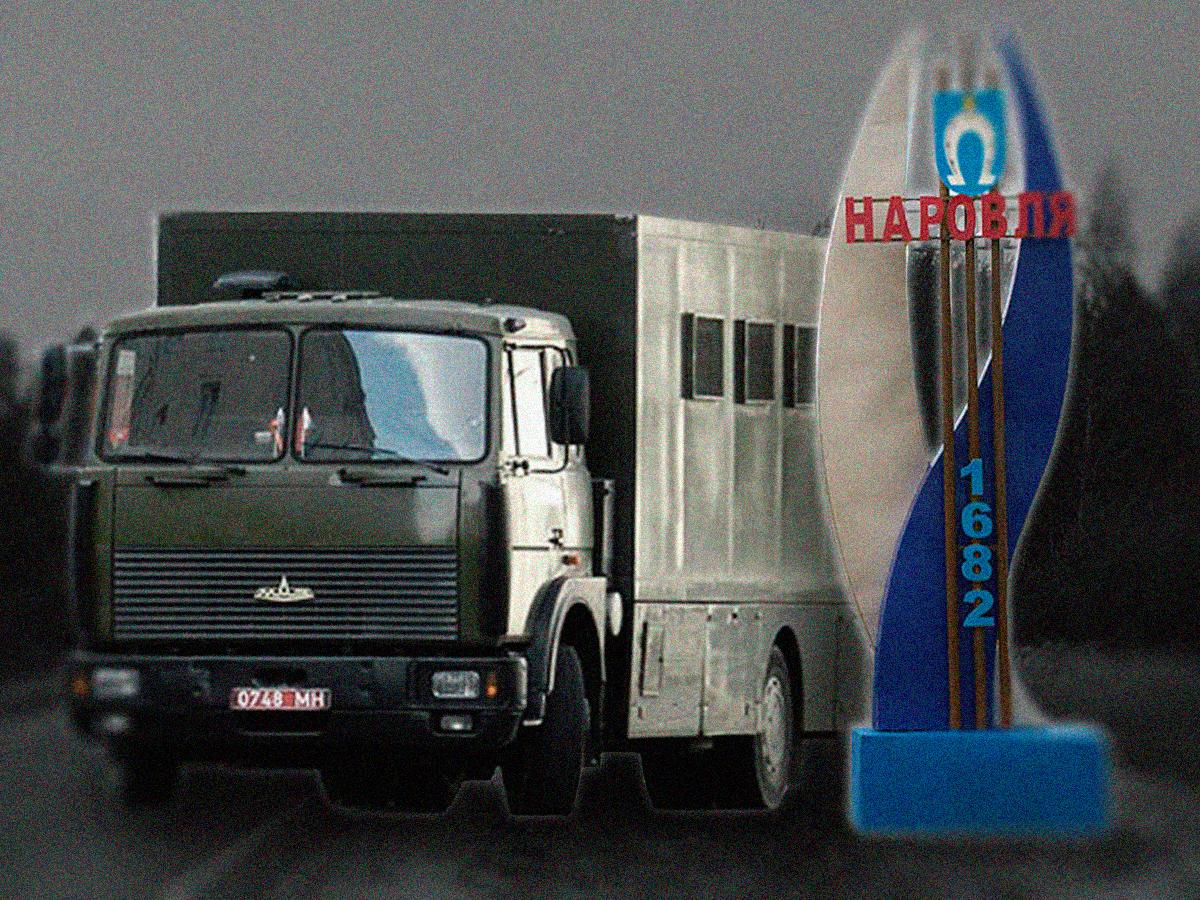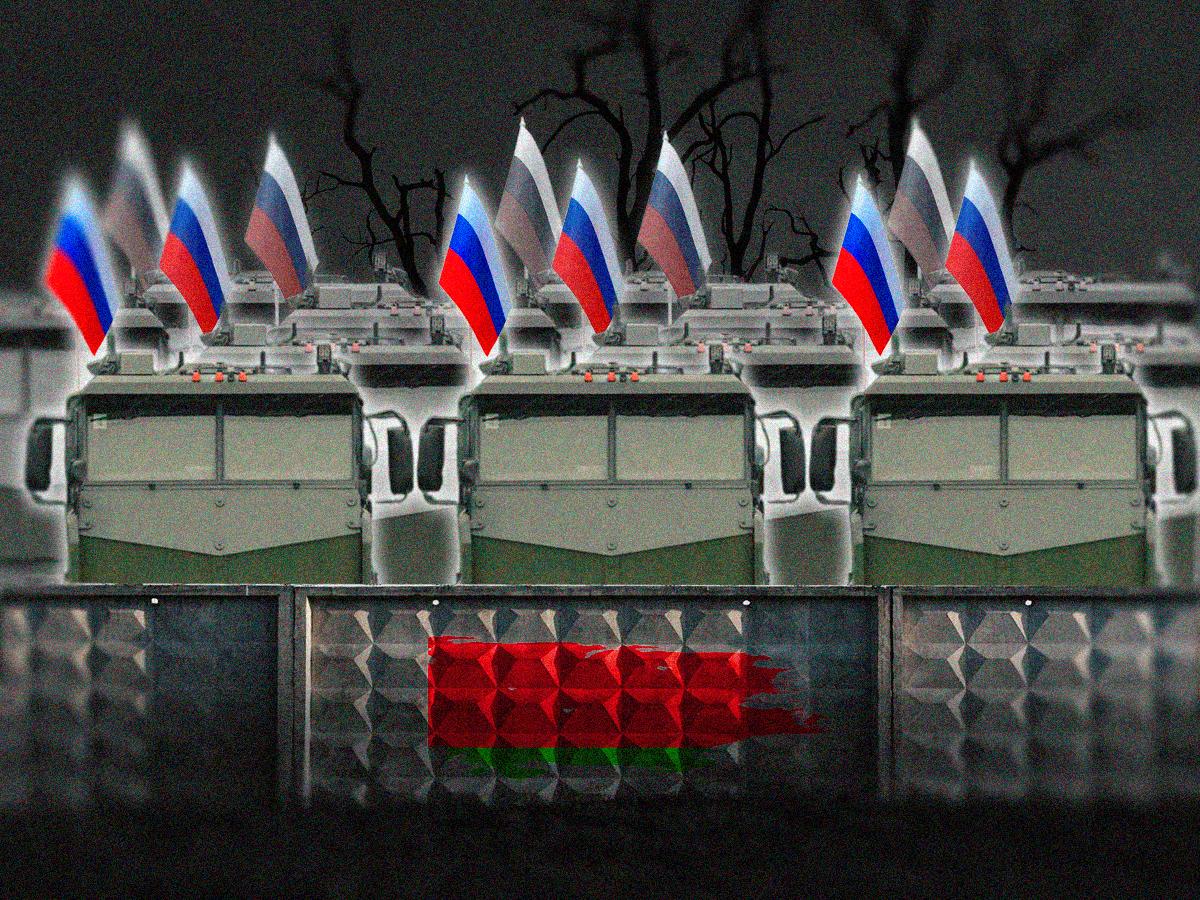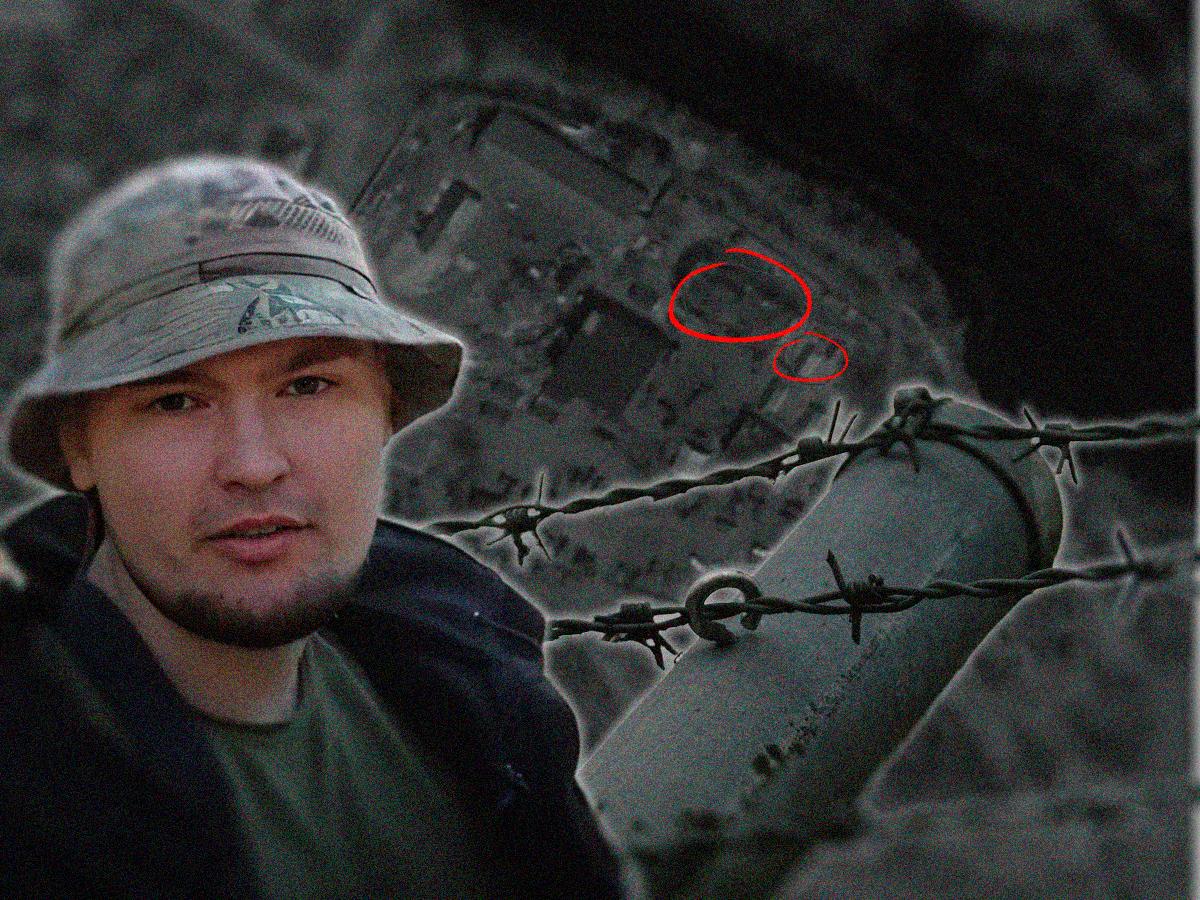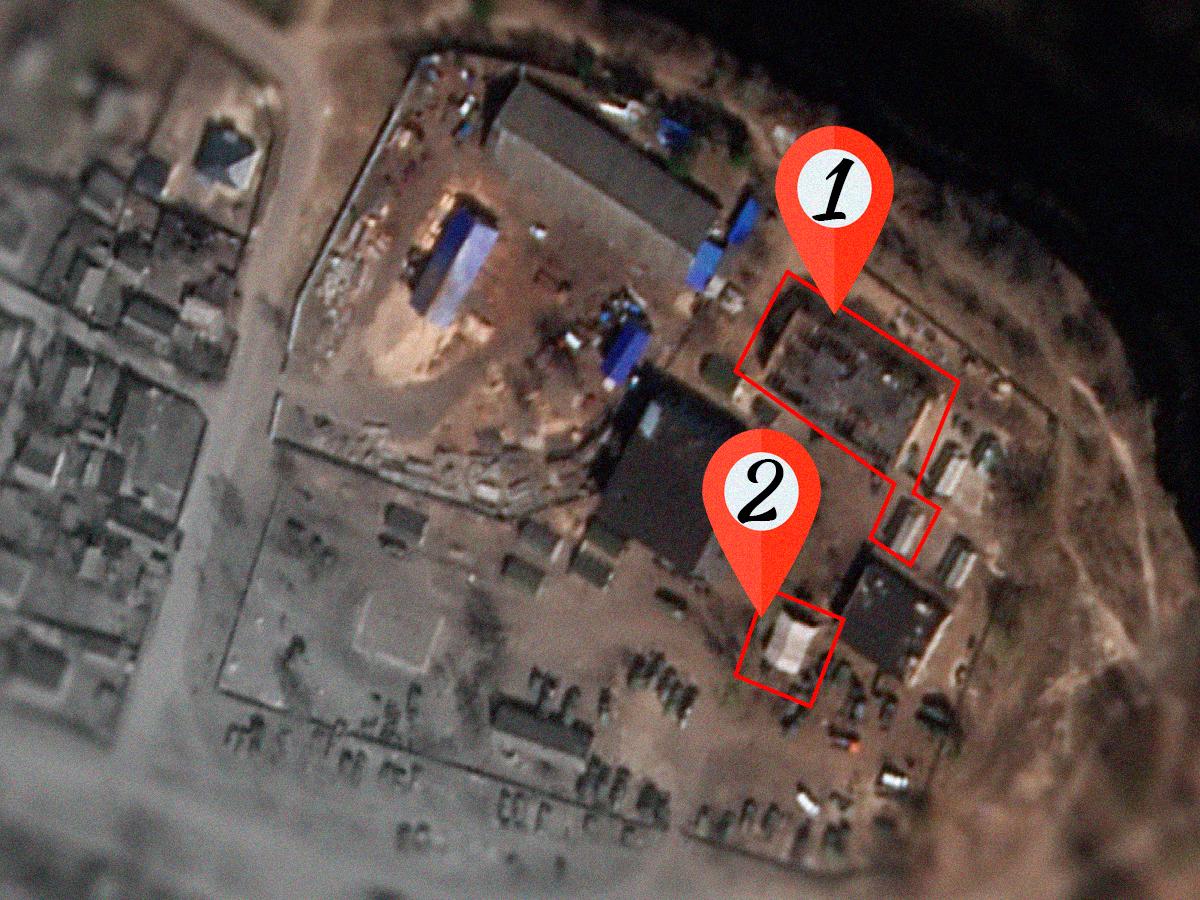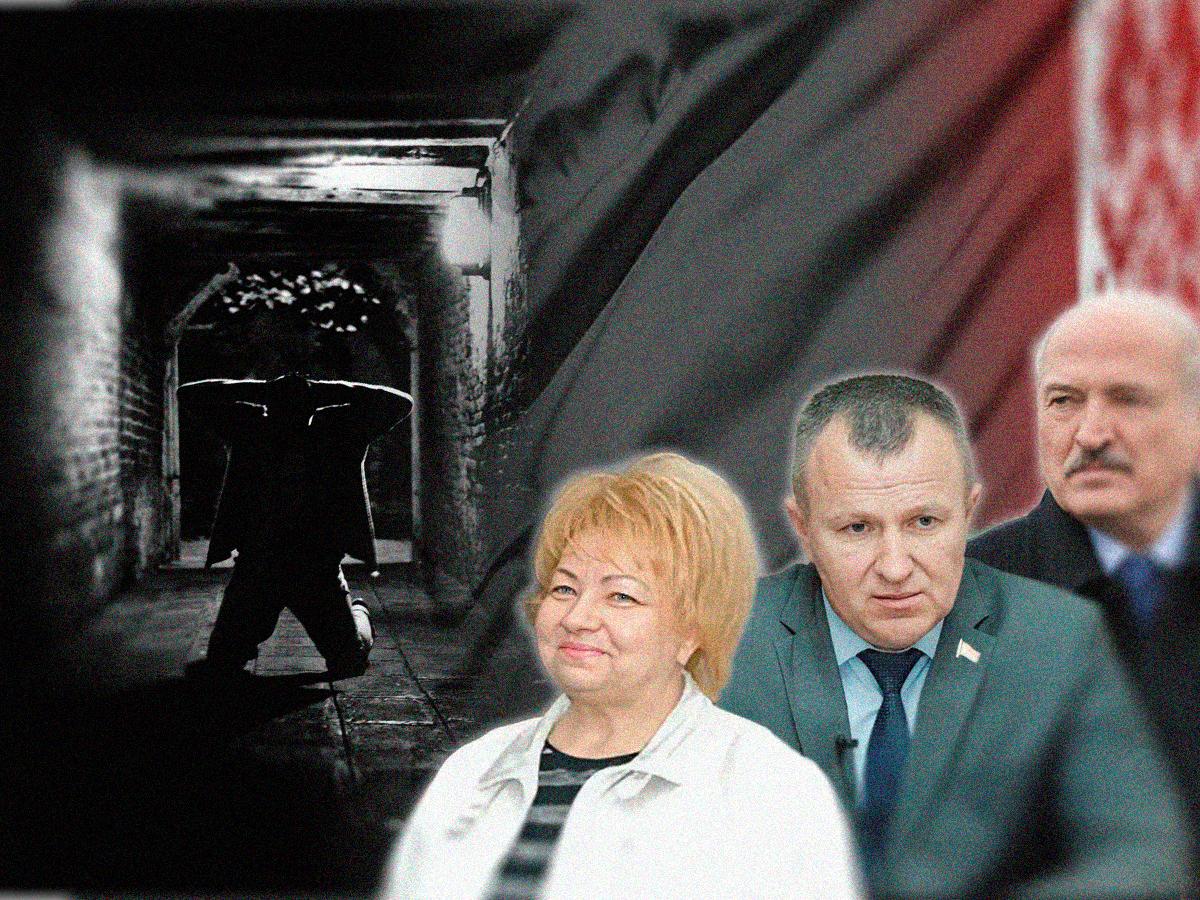This article was produced in collaboration with Skhemy, a project of Radio Liberty Ukraine, Radio Liberty Belarus, with the support from CyberPartisans and The Reckoning Project, an organisation that records human rights abuse.
Sons in captivity
It is just over 45 kilometers from the Ukrainian village of Orane to the border with Belarus. In 2022, Orane, like other settlements in the northern part of the Kyiv region, fell under Russian occupation.
At the end of March 2022, two sons of village resident Larysa Yahodynska were captured and taken to Belarus by the Russian military. And if the younger one, Vladyslav, a minor at the time, was returned home from the Mazyr orphanage (Mazyr is a city in the Homel region of Belarus), then the older one was taken deeper into Russian territory. [*] [*] [*] [*]
"They said that [my sons] were saboteurs, and they took them away to Chornobyl. It turned out they were beaten, and as [the younger son] Vladyslav later told, they most likely broke the ribs of the elder one, they beat him hard with a bat. He is older. Vladyslav was also beaten badly", the woman told Ukrainian journalists from the Slidstvo.Info project.
We managed to talk to her son Vladyslav Yahodynskyi. He said that Russian soldiers took him and his brother in a police wagon to the territory of Belarus: "I realised that when I was transferred to the border controls. There were border guards there, and I asked them [where we were]. And they replied: ‘Belarus, Naroulia’”.
According to Vladyslav Yahodynskyi, the POWs were held in an area that resembled an abandoned collective farm. Ukrainian soldier Viktor (name changed at his request) also described the place where he was held to BIC journalists in a similar way. He was captured by the Russians at about the same time as the Yahodynkyi brothers. Viktor was exchanged in 2024.
"We were blindfolded. They transported us in police wagons. And then this comrade, [with whom] we were together, said that he seemed to have heard ‘Naroulia’”, he said.
According to Viktor, there, in Naroulia, they were placed in "some large collective farm": "The compound was large. There was plenty of equipment, I mean, there were tanks, Soviet anti-aircraft guns, right next to it… I mean, they were passing through: they had a repair facility or a transit point there, because there was a lot of equipment".
Tortures in Naroulia
Naroulia is a town in the Homel region of Belarus, located on the banks of the Pripyat River. Until 2022, it was known primarily for its local landmark, the Horvatt Manor.
Following the full-scale invasion, Ukrainian human rights activists and journalists started to receive information that Russian military personnel had set up a filtration camp in the town, where they were taking captured Ukrainians – both military personnel and civilians. Yulia Polekhina, a lawyer and documenter of war crimes for the SICH human rights group, told us that prisoners are being tortured there:
"I have a client, she is the mother of a young man, 24 years old, who was detained in March 2022 by Russian military personnel. He was detained along with his father in the city of Hostomel, in the Kyiv region, and was forcibly deported to Naroulia, Belarus, where they were both held in a filtration camp. The father testifies they were tortured there".
Journalist for Radio Liberty Ukraine Dmytro Dzhulai, who specializes in investigating war crimes, says that the prisoners who were displaced from the Kyiv region in 2022, in most cases, first ended up on the territory of Belarus. Iryna Bohdanova, an expert of the coordination group for the release of POWs under the General Staff of the Armed Forces of Ukraine, spoke about this in an interview with the Suspilne Dnipro TV and Radio Company in July 2022:
"Naroulia in Belarus is where the filtration camp was located and, probably, still is, and where the greatest assault on civilian hostages has taken place. And I am sure that Belarus will also be held accountable".
Hub for Russian military
With two clues — the city of Naroulia and the area described as a "large collective farm" or kolkhoz — we began our search for the exact location of the camp by analyzing Planet Labs satellite images dated early 2022. These were provided by the Radio Liberty project Skhemy.
Military equipment was scattered throughout the town. This made it difficult to locate the camp. The BIC journalists found a clue, however: according to the land registration data, nearly all the plots on which military vehicles were parked belonged to companies founded by state enterprises. [*] [*]
In the southwestern part of the town, in the parking lot of the Naroulia State College, a field hospital was set up around February 22. The locals said there was Russian military equipment just across the road from it, on the compound of Bus Depot No.2, a branch of state enterprise Gomeloblavtotrans. [*]
Military equipment and a field camp are also visible in Planet Labs satellite images from April 2022 in the eastern part of Naroulia on the compound of Narovlyanskaya Peredvizhnaya Mekhanizovannaya Kolonna No. 107. [*]
Another site, closer to the Pripyat River, was located on Kamsamolskaya Street. This is the premises of Pripyatski Alyans enterprise, which belongs to the Belkoopsoyuz of the Council of Ministers of the Republic of Belarus. [*] [*] [*] [*]
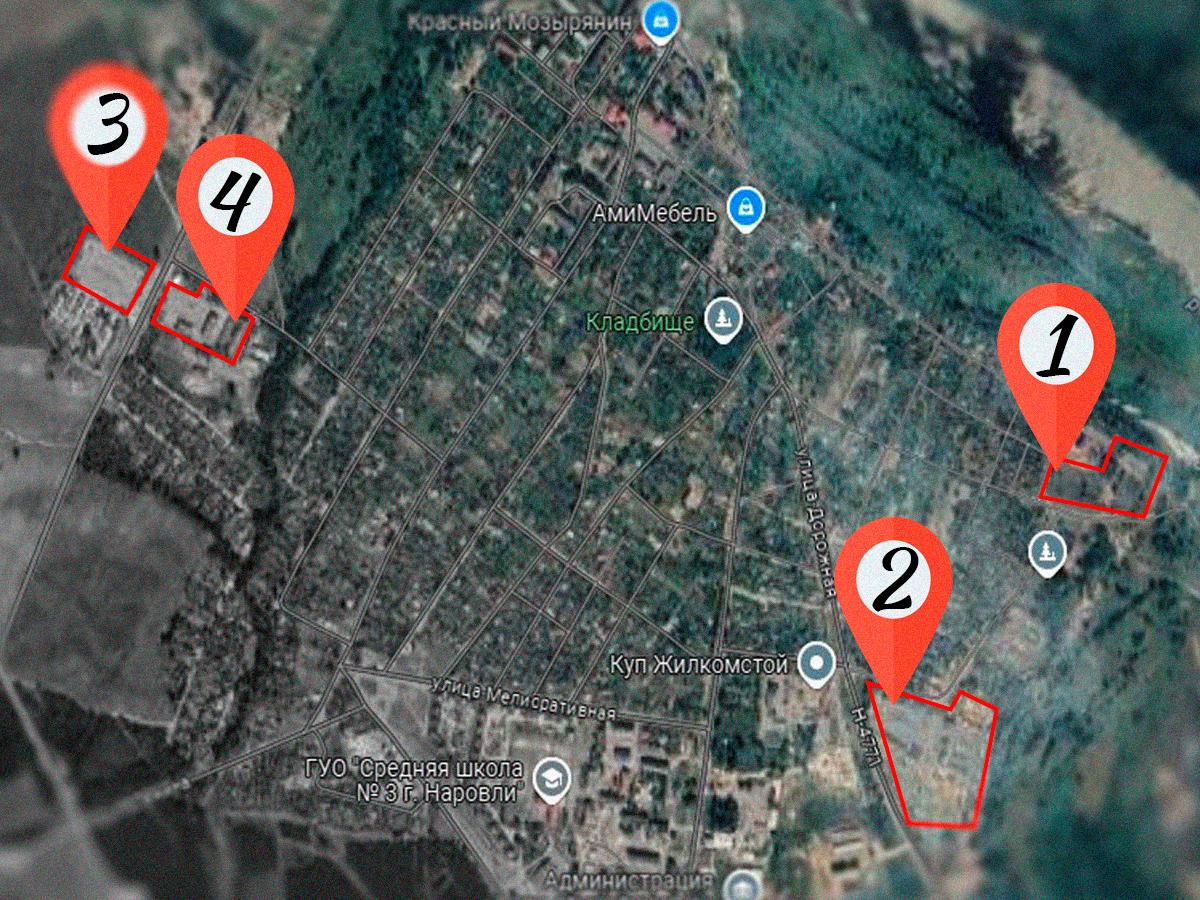
The filtration camp in Naroulia could have been set up in any of these locations. All of them, one way or another, fit the descriptions of Vladyslav Yahodynskyi and the soldier Viktor. Russian media helped us determine the exact location.
A find on a state enterprise compound
In late October 2024, we met with Bohdan Lysenko, a soldier of the Ukrainian Armed Forces who was captured by the Russian military in late March 2022. He told us that he and a group of fellow signalmen were captured after their military unit was stormed. They were then taken to Naroulia:
"Naroulia was such a propaganda picture to show how they [Russian military] are so humane... But nobody showed how they questioned the civilians there. And they beat up civilians there really hard... One could hear constant screams there".
Our interviewee described the detention place in Naroulia in the same way as Vladyslav Yahodynskyi and the soldier Viktor: "Agricultural area. Perhaps some former collective farm or tractor base and something of the kind".
We found Bohdan Lysenko on a video from the Russian NTV channel: wounded during the assault, he is being transported on a stretcher by Russian soldiers, and he is then theatrically provided with medical assistance. This took place in the same place that Bogdan describes as a "kolkhoz". The TV report also showed other soldiers that had already been released: Anastasiya Matrushchenko, Maryana Fedorova and Oleksandr Tsypuk. Tsypuk and Matrushchenko said that they were also held captive in Belarus.
We sent links to the NTV video to Vladyslav Yahodynskyi and former POW Viktor. They both confirmed this is the same "kolkhoz".
To find the filtration camp, we compared the footage from the NTV story with each site in Naroulia where we found concentrations of military equipment on satellite images. Thanks to one distinctive building with a collapsed roof as well as tents and KamAZ trucks located nearby, we managed to identify it. It was located on the compound owned by OOO Pripyatski Alyans, on Kamsamolskaya Street.
Satellite images indicate that Russian military personnel were present here at least until early May 2022. When the Ukrainian Armed Forces de-occupied the Kyiv region, the routes for transporting POWs probably changed.
We called Pripyatski Alyans, the company owned by the Homel Regional Consumer Society. The company director Zinaida Mirutsenka advised that questions be addressed to the executive committee. The head of Naroulia's executive committee, Uladzimir Antonenka, is a former member of Aleksandr Lukashenko's security service. The person who answered his phone said we had the wrong number.
Lukashenko's responsibility
According to lawyers from the Ukrainian-American organization The Reckoning Project, the actions of Russian military personnel who evacuated civilians, including minors, to Naroulia may indicate a violation of the Geneva Convention provisions.
"The prohibition of forced displacement is contained in Article 49 of the IV Geneva Convention. The IV Geneva Convention applies to civilians. Illegal deportation or forced displacement constitutes an international crime", The Reckoning Project expert said in a commentary to the BIC.
"Civilian and military war prisoners cannot be kept in the same camp. Holding civilians and military personnel in the same place is an additional and separate crime. Unlike prisoners of war, who can be moved to the territory of another state, civilians cannot be transferred from occupied territories. Except when it is necessary for their safety, in case of natural disasters or something like that. <...> The very fact of deporting civilians from occupied territories is a separate war crime. And even more so if it involves minors. <...> They can be transferred abroad only in cases where they need medical care, with the consent of official representatives or parents. Therefore, the very facts of the removal [of children – ed. note] constitute war crimes", said Katsiaryna Deikala, international law expert, PhD in Law.
According to lawyer Yulia Polekhina, Aleksandr Lukashenko should bear responsibility for setting up a filtration camp on the territory of Belarus: "These filtration camps cannot be built without relevant government officials giving their consent. And when people are beaten, tortured, and denied medical care, this is a war crime. And this cannot happen without the consent of the authorities".
We sent a request to Aleksandr Lukashenko's press secretary, Natallia Eismant. At the time of publication, she had not provided a reply.
Larysa Yahodynska says that her elder son, who went through the filtration camp in Naroulia, is being held in one of the Russian correctional facilities: "A person who was held in the same facility for over a year said that my son is held there not as a convict, but as a witness in some case".
The woman has no further information about her son, or about the possible date of his release. Over two years have passed since he was taken prisoner.
This materials/publication/video was produced with the financial support of the European Union. Its content represents the sole responsibility of the EU4IM Project, financed by the European Union. The content of the materials/publication/video belongs to the authors BIC and does not necessarily reflect the vision of the European Union.




